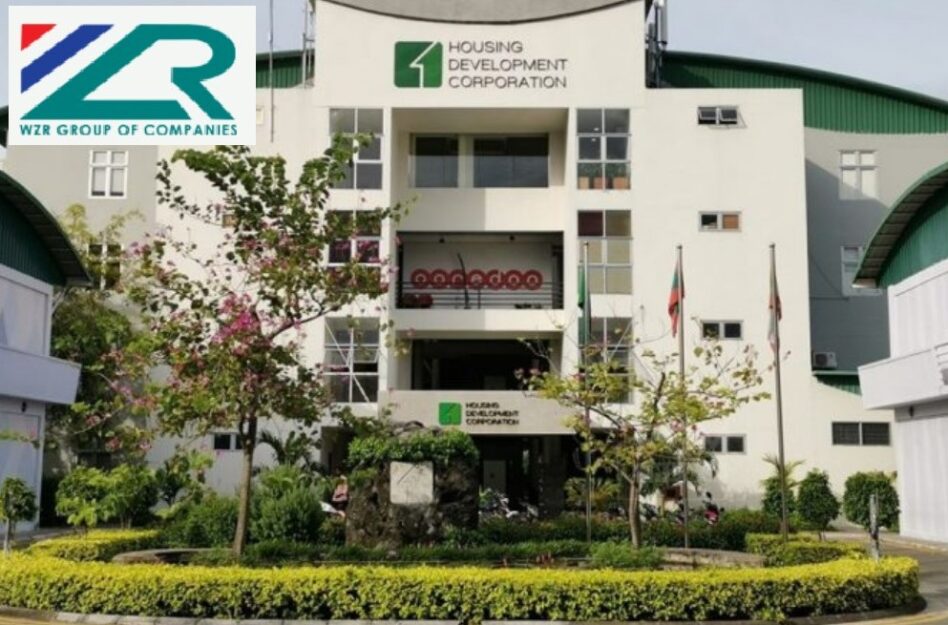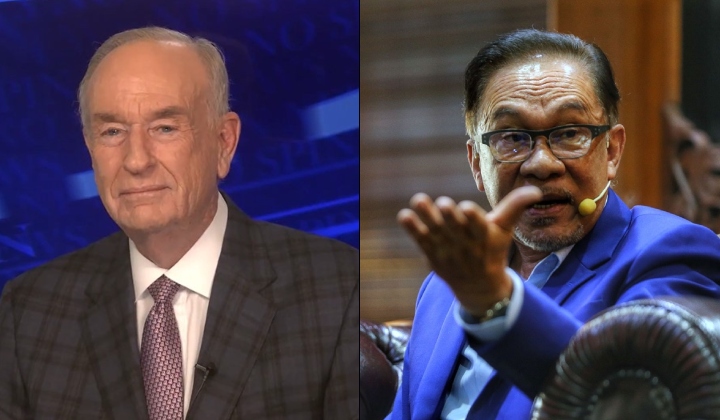MALAYSIA’S economic progress is often retarded by poor decisions from government-linked companies (GLCs) and government-linked investment companies (GLIC).
Two recent examples are Khazanah Nasional Bhd’s investment in FashionValet Sdn Bhd and the Malaysia External Trade Development Corp’s ((MATRADE) support for Nooryana Najib, daughter of disgraced former premier Datuk Seri Najib Razak.
These cases show how public funds are misused because of policies that prioritise race and connections over merit. This system, rooted in Ketuanan Melayu (Malay supremacy), has created divisions in Malaysian society and held the country back.
A destructive system
Founded by socialite Vivy Yusof, FashionValet was seen as a promising e-commerce outfit. The GLIC Khazanah Nasional invested over RM30 mil in the business but it failed to compete with global platforms like Zalora and Shopee.
By 2023, FashionValet had shut down, leaving taxpayers to bear the millions in cost of the sovereign fund’s poor decision-making.
Similarly, MATRADE supported initiatives led by Nooryana thus raising serious concerns of corruption and nepotism.
With direct links to corruption as Najib’s daughter, Nooryana’s career benefitted from political influence rather than proven leadership potential in the industry sectors prioritised by MATRADE whose endorsement reflects a destructive trend of favouring connections over capability.
These actions undermine the trust that Malaysians place in public institutions as well as the trust of international investors who will take their money to other nations’ economies.
The “we were here first” mentality
As an example of the problematic brainwashing of Ketuanan Melayu policies, an 18-year-old student from Johor Bahru, Sharifah Dania, was reportedly telling the Singapore Straits Times in a recent embarrassing article about Bumiputera-ism:
“Malay rights should not be abolished because Malays have been here from the start. Malaysia was called Tanah Melayu, and the Chinese and Indians came here from China and India only a few years before independence.”
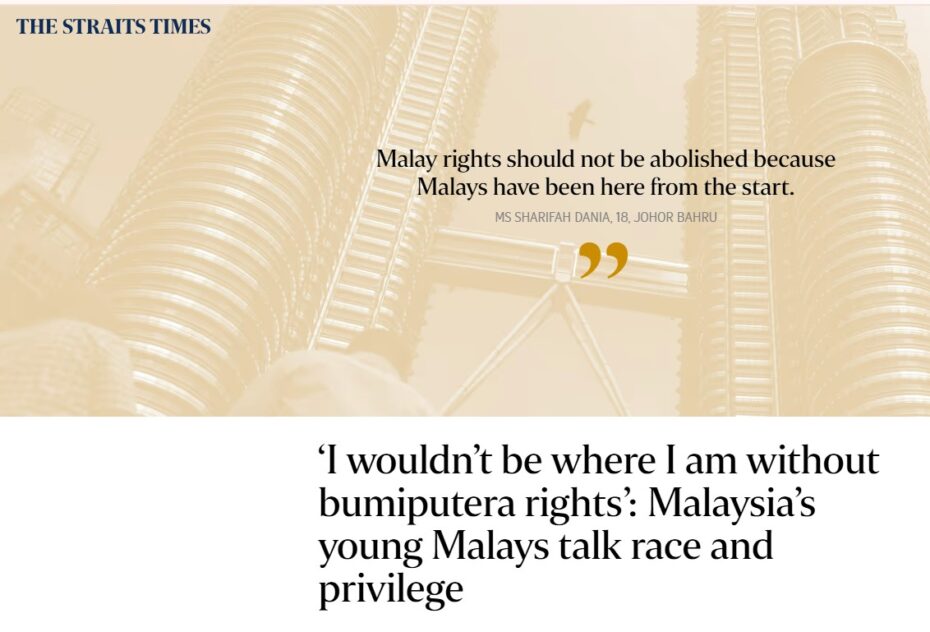
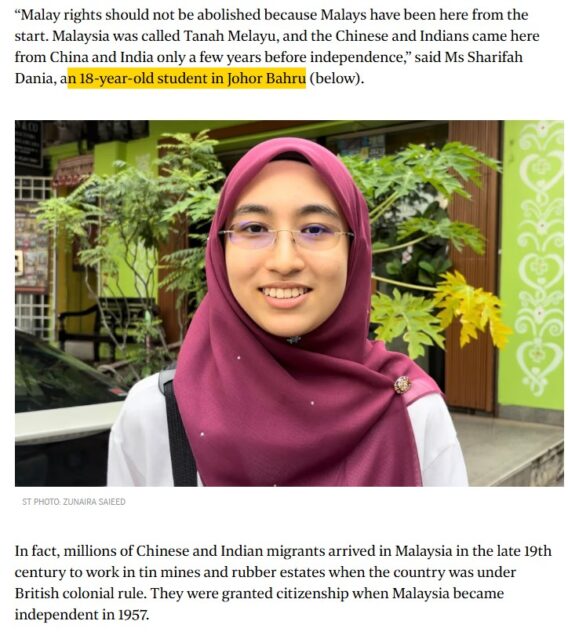
This, of course, is completely false. The Singapore Straits Times article went on to correct the student’s flawed belief by explaining that “in fact, millions of Chinese and Indian migrants arrived in Malaysia in the late 19th century to work in tin mines and rubber estates when the country was under British colonial rule”.
“They were granted citizenship when Malaysia became independent in 1957,” the paper added. The problems with Vivy and Nooryana reflect Sharifah’s same entitled “we were here first” mindset.
Notwithstanding that it was the Orang Asli who was here first – hence, the real “sons of the soil” – this “we were here first” mindset inflicts real economic and social costs on Malaysia despite the outdated Ketuanan Melayu policies that make the Malaysian society even worse off.
Introduced under the New Economic Policy (NEP) in the 1970s, Malay-supremacist policies aimed to reduce inequality. However, they have morphed into a system that often benefits only the elite and politically connected.
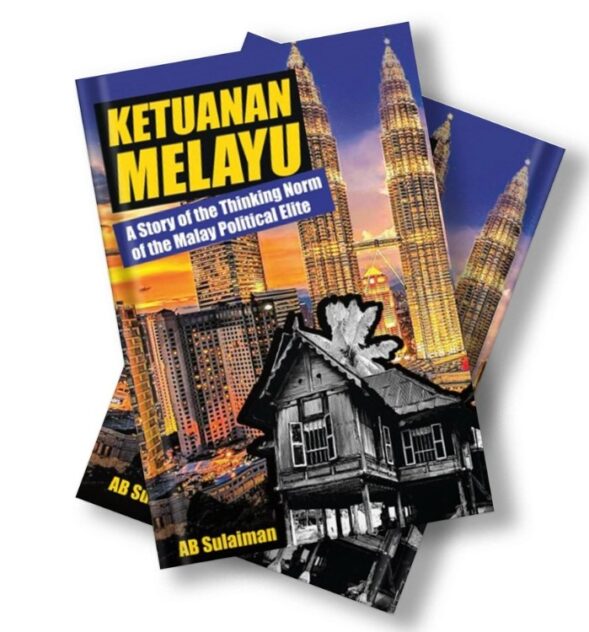
Worse, prioritising race over merit has led to investments in uncompetitive ventures, wasting resources that could have been better used to grow the economy. With destructive economic segregation, this system divides Malaysians and prevents the country from achieving its full potential among its Asian neighbours.
Accelerating social divisions, inequality
The impact of Bumiputera supremacy extends beyond the economy. Non-Malays who are excluded from many opportunities feel sidelined despite their ability to contribute.
This creates resentment and deepens ethnic divides. Even within the Bumiputera community, benefits are lopsided. The Malay elites like Nooryana and Vivy receive most of the support while many ordinary Malays continue to face economic struggles.
To Malays who insist that they would be “left behind” without Ketuanan Melayu policies, former de-facto law minister Datuk Zaid Ibrahim recently remarked:
“… Malays generally do not have to worry too much. In this country, Bumiputera control everything… we’ve a Bumiputera government … PETRONAS and the biggest banks are practically Bumiputera.
Another day at the Congress
Dato Seri Wahid Omar is a well-known Malay technocrat. He is one of the few in the select group who, without fail, will be chosen to head an entity in the nation’s corporate world, regardless of who becomes the Prime Minister. Lucky man
At the…
— Zaid Ibrahim (@zaidibrahim) March 1, 2024
PNB (Permodalan Nasional Bhd) owns all the significant conglomerates for the Bumiputera. Khazanah and the hundreds of GLCs are Bumiputera…To the Malays, I say relax. Our leaders are doing everything for us. The worldly matters, that is. No group in the world are as fortunate as the Bumiputera.”
This unequal distribution creates mistrust and destroys social cohesion even more than the vernacular schools that some Malaysians bemoan.
As the Singapore Straits Times article explains, “While the [Bumiputera] policy has succeeded in raising the economic status of millions of Bumiputera, it has also been criticised for fostering dependency on government support and creating a sense of unfairness felt among other ethnic groups, potentially hindering Malaysia’s competitiveness.”
In this way, Malaysia’s current approach mirrors apartheid South Africa where resources controlled by one group have created inefficiency and social divisions.
If Malaysia is to thrive in the competitive Asian economy, then Prime Minister Datuk Seri Anwar must keep his reformasi promises by eventually eliminating such harmful policies.
Only then can entitled beneficiaries like Vivy and Nooryana give way to deserving Malaysians to achieve greater successes through inclusivity and merit. – Dec 23, 2024
Corruption Watch is a reader of Focus Malaysia.
The views expressed are solely of the author and do not necessarily reflect those of Focus Malaysia.





